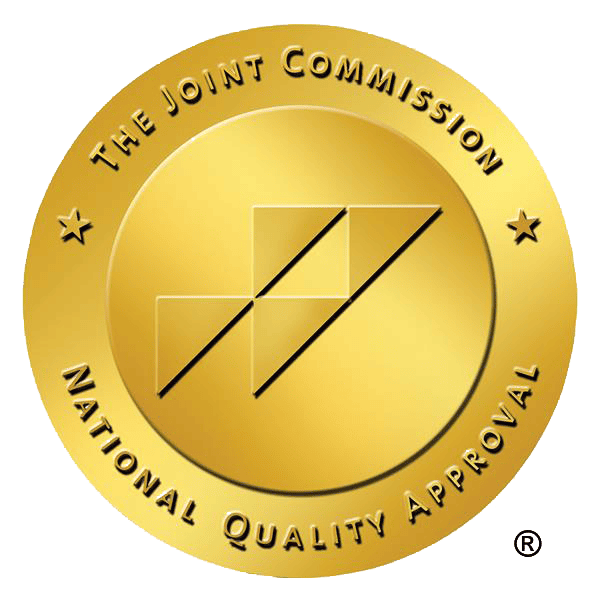Fentanyl Addiction Treatment in Austin, TX
Fentanyl has become a major concern in Austin, Texas, as the illicit use of the drug has been growing significantly since 2015. The high potency and addictive quality of this synthetic opioid have led to a crisis in the state. Rehab centers, such as The Prairie Recovery Center, offer specialized fentanyl addiction treatment in Austin for those struggling with fentanyl addiction to help them achieve lasting recovery. Additionally, organizations like Texas Against Fentanyl (TXAF) are working to educate the public, including through school curriculums, about the dangers of fentanyl.
What is Fentanyl?
Fentanyl is a potent synthetic opioid, produced both as a pharmaceutical drug and an illegal narcotic. It’s often prescribed by doctors to manage extreme pain levels for patients recovering from major surgery or for those who are terminally ill. However, due to its high potency and euphoric effects, fentanyl is also widely abused.
Fentanyl Uses
Originally invented to treat severe cancer pain, fentanyl is now a common component in illicit drug labs. Drug dealers mix it with more costly drugs like heroin because it’s relatively inexpensive to make. Consequently, this creates a dangerous situation as users often unknowingly ingest fentanyl.
Thus, leading to overdoses and deadly consequences. Its high potency makes fentanyl a lethal substance, even in small doses. This connection between fentanyl and heroin has led to the need for specialized heroin and fentanyl addiction treatment.
How Does Fentanyl Affect the Brain?
Fentanyl affects the brain by binding to its opioid receptors. Primarily those located in areas of the brain responsible for pain and emotion. When it attaches to these receptors, fentanyl increases the release of the neurotransmitter dopamine in the brain’s reward areas. Thus, producing feelings of relaxation, euphoria, and pain relief.
However, this surge in dopamine is also what contributes to the reinforcing effects of the drug, leading to the potential for addiction. Additionally, opioids like fentanyl depress the respiratory centers in the brain. Consequently, leading to slowed or stopped breathing, which is the primary cause of death in opioid overdoses.
Effects of Fentanyl
Fentanyl is a synthetic opioid that’s 50 times stronger than heroin and 100 times stronger than morphine. It’s highly addictive and a tiny dose, as small as the tip of a pencil, can be fatal. Fentanyl abuse can lead to rapid respiratory depression and damage to internal organs.
Fentanyl, like other opioids, has a range of short and long-term effects on the body:
Short-Term Effects
- Euphoria and relaxation: A feeling of intense happiness and calm.
- Pain relief: Due to its potent analgesic properties.
- Drowsiness: Feeling sleepy or fatigued.
- Nausea and vomiting: Common side effects of many opioids.
- Constipation: Reduced bowel motility.
- Slowed breathing: Opioids depress the respiratory system, which can lead to shallow or slowed breathing.
- Confusion: Cognitive functions can be impaired.
- Constricted pupils: Known as “pinpoint pupils.”
Long-Term Effects
- Addiction: Regular use can lead to physical and psychological dependence.
- Increased tolerance: Need more of the drug to achieve the same effect.
- Respiratory distress or failure: Chronic use can lead to persistent respiratory problems.
- Weakened immune system: Potential increased susceptibility to infections.
- Gastrointestinal problems: Chronic constipation and other digestive issues.
- Brain damage: Due to repeated episodes of hypoxia (low oxygen) from depressed respiration.
- Mental health issues: Depression, anxiety, and increased risk of suicide.
- Risk of overdose: As tolerance grows, there’s a higher risk of accidental overdose, which can be fatal.
It’s important to stress that the potency of fentanyl is much higher than many other opioids, so the risk of overdose and its associated effects is particularly significant.

The Fentanyl Crisis in Texas
The Fentanyl Crisis in Texas mirrors the larger opioid epidemic seen across the United States but has unique regional characteristics. Fentanyl has been increasingly found in illicit drug markets in Texas. It’s often mixed with other drugs, like heroin or counterfeit pills. Thereby, leading users to consume it unknowingly. The drug’s potency means that even a small amount can be lethal, resulting in a surge of overdose deaths.
Contributing to the crisis in Texas is its proximity to the US-Mexico border, a major entry point for illicit fentanyl. The state has witnessed a rise in seizures of the drug and related deaths. As a result, heightened efforts by law enforcement and public health officials to combat its spread and educate the public on its dangers.
Ultimately, its high potency and addictive nature make it a deadly drug, with even a small dose potentially being lethal. The problem is exacerbated by synthetic versions produced in illegal drug labs, leading to a high risk of overdose and addiction.
Overdose Statistics
In recent years, the rate of fentanyl-related overdose deaths in Texas has skyrocketed. According to Texas Health and Human Services, there are an average of 5 deaths a day in Texas due to fentanyl poisoning. As per the National Institute on Drug Abuse, in 2018, out of the 3,005 opioid-related overdose deaths in Texas, fentanyl accounted for a significant portion. This alarming rise in fentanyl overdose deaths underscores the severity of the fentanyl crisis in the state.
Crime Rates and Fentanyl Addiction
Along with the rise in overdose deaths, fentanyl addiction has also led to an increase in crime rates in Texas. Addicted individuals often resort to criminal activities to support their addiction, leading to a surge in drug-related crimes. The correlation between fentanyl addiction and increased crime rates demonstrates the broader societal impact of this crisis.
Impact on Families and Communities
Fentanyl addiction doesn’t just affect the individuals struggling with the addiction. It also takes a toll on their families and communities. Families often face emotional and financial strain, while communities grapple with increased healthcare costs and crime rates.
The Impact of Fentanyl in the City of Austin and Travis County
The need for fentanyl addiction treatment in Austin is evident from the city and county drug addiction statistics. As per a recent report, Austin has one of the highest rates of drug overdose deaths in the state, with fentanyl being a major contributor. Austin serves as the county seat of Travis County.
Recent statistics reveal a concerning rise in preventable overdoses within the county, with 308 deaths recorded in 2021—an increase of over 50 from the previous year. This surge has made drug toxicity the foremost cause of accidental deaths, surpassing even falls and car accidents.
Alarmingly, of the 308 overdose fatalities, 118 were attributed to fentanyl— a sharp increase of 237% from the 35 deaths in 2020. Projections from various sources, including the CDC, suggest that 2022 could be the most lethal year yet. This highlights the urgent necessity for effective fentanyl addiction treatment in Texas.

Understanding Fentanyl Addiction
Fentanyl addiction is a complex, multifaceted issue that demands a thorough understanding and an empathetic approach to treatment. The rise in fentanyl misuse and addiction has led to the establishment of specialized fentanyl treatment centers to help individuals struggling with addiction.
These centers offer services such as fentanyl detox, comprehensive addiction treatment programs, and aftercare to support individuals in overcoming their addiction and building a healthier, substance-free life.
Why is Fentanyl so Addictive?
Fentanyl is highly addictive due to its powerful ability to stimulate the brain’s reward system. When fentanyl enters the brain, it binds rapidly to opioid receptors, leading to a surge of dopamine—a neurotransmitter associated with pleasure, reward, and euphoria. Because fentanyl is significantly more potent than many other opioids, even small amounts produce a profound and intensely pleasurable euphoric effect.
This strong sensation drives individuals to seek out the drug repeatedly. Thereby, leading to a cycle of use and increasing the risk of dependency and addiction. Additionally, as users consume fentanyl, they can quickly develop a tolerance. Therefore, necessitating higher doses for the same effect, further escalating the potential for addiction and overdose.
Dangers of Fentanyl
Fentanyl is an extremely potent and dangerous drug, and it has become the most common drug in overdose cases in the United States. Many fake prescription pills and other illicit substances laced with fentanyl contain lethal doses of the drug. The DEA’s “One Pill Can Kill” campaign serves as a reminder of the risks of fentanyl misuse.
In Texas, fentanyl addiction has had a significant impact on communities. Thus, making it important to find effective fentanyl addiction treatment programs. Our comprehensive fentanyl addiction treatment program in Austin at The Prairie Recovery Center offers detoxification, therapy, and support for individuals struggling with fentanyl addiction. Swift action and evidence-based treatment help those battling addiction reclaim their lives.

Signs and Symptoms of Fentanyl Addiction
The Prairie Recovery Center, a leading provider of fentanyl addiction treatment in Austin, is dedicated to educating the public about this life-threatening issue. Recognizing the signs and symptoms of fentanyl abuse can be the first step toward seeking help.
Physical Symptoms
Fentanyl can manifest various physical symptoms in individuals addicted to the drug. These symptoms can range from mild to severe, depending on the person’s tolerance and frequency of use.
- Frequent bouts of severe drowsiness
- Slowed or irregular breathing
- Nausea and vomiting
- Confusion and disorientation
- Constricted pupils
- Seizures
Understanding these physical signs is crucial for anyone suspecting a loved one might be struggling with fentanyl addiction.
Behavioral Symptoms
Apart from physical symptoms, fentanyl abuse often leads to noticeable behavioral changes. These symptoms are usually more apparent to close friends and family members.
- Withdrawal from social activities
- Sudden mood swings
- Unexplained financial issues
- Neglect of personal responsibilities
- Increased secrecy and deceptive behavior
Recognizing these behavioral symptoms can be vital in identifying a fentanyl addiction and seeking timely intervention.
The Prairie Recovery Center’s comprehensive fentanyl addiction treatment program includes detox and rehab and addresses the root causes of addiction through behavioral therapy. The center’s dedicated staff works tirelessly to help those addicted to fentanyl regain control of their lives, offering hope in the grueling battle against addiction.

Why Choose The Prairie Recovery Center
The Prairie Recovery Center offers comprehensive fentanyl addiction treatment in Austin. This includes fentanyl detox, residential rehab, and behavioral therapies to address the root causes of addiction. Treatment begins with a thorough assessment. Followed by developing a highly personalized treatment plan.
Through our fentanyl rehab program, The Prairie Recovery Center strives to not just treat the physical symptoms of addiction. But also address any co-occurring mental health orders. We provide dual diagnosis treatment which is a critical aspect of long-term sobriety. As well as individual and group therapies, family support services, and aftercare to help individuals build a sustainable, substance-free life.
The Prairie Recovery Center’s comprehensive and holistic approach to fentanyl addiction treatment makes it an ideal sanctuary for healing and transformation. Our commitment to providing high-quality care and support to individuals struggling with addiction is a crucial component in the fight against the fentanyl crisis in Austin.

We're here to help you recover from drug and alcohol addiction.
Have additional questions? Learn more about addiction and treatment options on our FAQ page.
The Answer to Fentanyl Addiction Treatment in Austin, TX
Fentanyl addiction’s grip on Austin, TX is undeniable. But there’s hope in the form of comprehensive treatment programs like the one at The Prairie Recovery Center. Offering medical detox, residential rehab, dual diagnosis treatment, and evidence-based practices, we’re equipped to tackle this crisis head-on.
Beyond medical treatment, we’re dedicated to providing a holistic approach to recovery, including psychotherapy, cognitive behavioral therapy, and medication management. We even offer yoga, mindfulness, and nutrition counseling. Our team is committed to helping individuals on their journey to recovery, with a focus on compassion and understanding.
Reach out today to get started on the road to a new healthier and happier life in recovery.

